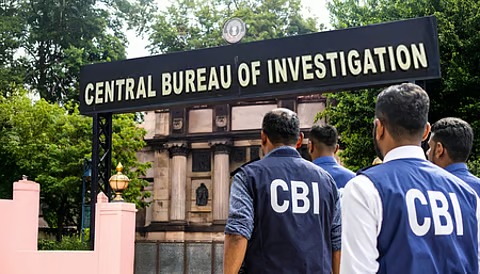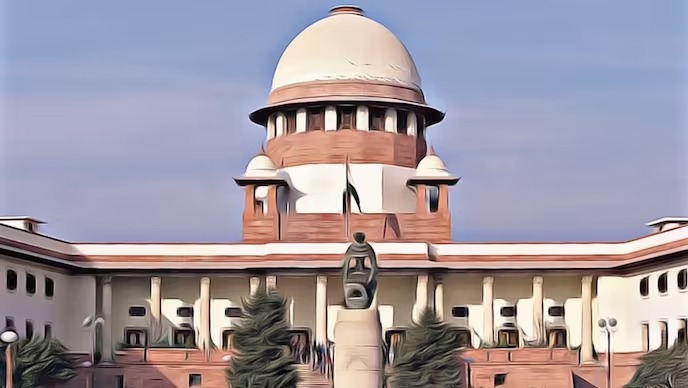1. WHETHER the heirs of a deceased telephone subscriber can maintain a consumer dispute without getting the connection transferred in his name ? This is the solitary, though significant question in this appeal.
2. THE facts merit notice with relative brevity and with relevance to the question aforesaid. Admittedly the telephone connection originally was secured and stood in the name of one Sh. Kundan Lal, the father of Kaushal Khetarpal, appellant. THE latter was primarily aggrieved by three telephone bills, which were sought to be challenged as excessive, inflated and incorrect. THE respondent-Department in their reply took up the threshold plea that the complainant was not a subscriber of the said telephone as it continued to stand in the name of Sh. Kundan Lal. Apparently to get over the objection, the complainant-appellant then moved an application for impleading of the heirs of Sh. Kundan Lal, deceased, which application was also opposed by the other side.
The parties led affidavit evidence in support of their case. The District Forum noticed that the original telephone subscriber Sh. Kundan Lal expired on the 3rd of November, 1989, whereas complaint was instituted nearly 3 years thereafter on the 2nd of April, 1993 during which the telephone had not been got transferred in the name of any of the heirs of the deceased-subscriber. On this primal ground it was held that the complainant-appellants were not consumers and thus had no locus-standi to maintain the complaint irrespective of the fact that an application in September 1993 for the transfer of the telephone was yet pending for decision according to rules.
Mr. Rakesh Nagpal, learned Counsel for the appellant had attempted to contend that the legal representatives of the deceased-subscriber were entitled to maintain the complaint despite his death long ago. Reliance was sought to be placed on I (1992) CPJ 302 (NC)=1992 (2) CPC 487. ''M/s. Cosmopolitan Hospitals & Anr. v. Smt. Vasantha P. Nair and Ors.'', and in the alternative it was contended that the appellants were in any case beneficiaries of the Tele-communication services and had the locus-standi to claim relief in the consumer jurisdiction.
3. ON the other hand Mr. Babbar had primarily placed reliance on Rule 430 of the Indian Telegraph Rules and also on the statutory instructions with regard to the general conditions governing transfers of connections etc.
In the context of the admitted statutory rules with regard to the Tele-communication services, the matter has inevitably to be considered in the light thereof. It is, therefore, apt to notice the provisions of Rule 430 at the very outset : "430. Death or change of title of a subscriber : In the event of the death of a subscriber, or a change in the constitution of a subscriber, firm or institution, the person claiming to be successor to such subscriber shall immediately give notice thereof to the Telegraph Authority and shall apply for permission to retain the connection or service."
4. IT would be somewhat manifest that herein the matter is not to be viewed on general principles, but within the parameters and confines of statutory provisions on the point. IT was not disputed before us that the Indian Telegraph Rules have been duly framed under the authority conferred by the Indian Telegraph Act and consequently are a part and parcel of central legislation. The result, therefore, is that as a matter of law provision has been made specifically for the situation, when a subscriber of telephone dies. IT is in terms mandated that the person claiming to be a successor to such a subscriber shall immediately give notice thereof to the relevant authority, who would then proceed to determine as to who is the successor according to the relevant provisions, therefor. Meanwhile, such a person must apply for permission to retain the connection or service. This would indicate that under Rule 430, the relationship of the subscriber with the Department terminates with the death of the individual subscriber and it is the province of the Departmental authorities to determine who would be a successor and who can meanwhile retain the connection. This situation is made even more manifest by the fact that even in the context of a change in the constitution of a partnership or an institution, the same or similar procedure has to be followed. IT is, therefore, self-evident from the relevant statutory provisions that the death of a subscriber snaps the relationship of the consumer and the same is not per-se heritable.
In all fairness, one must notice the reliance of the appellant''s learned Counsel on ''M/s. Cosmopolitan Hospitals & Anr. v. Smt. Vasantha P. Nair and Ors.'' (supra). Therein, it was held in the absence of any statutory provisions that the heirs or legal representatives of a person, who dies due to medical negligence, could maintain a complaint within the consumer jurisdiction. However, the distinction and the distinguishing features, which are obvious in first instance are that this would be so in the absence of any special provisions of law governing the situation. Secondly what deserves particular highlighting is the fact that in cases of medical negligence resulting in death, the right infact accrues only to the heirs or legal representative in the very original. It is not stricto-sensu an inherited right, but infact a primal one. As in the case of claims made under the Motor Vehicles Act for fatal accidents, the initial right itself arises to the legal representatives for loss of dependency and financial support. Similarly, in the consumer jurisdiction, death due to deficiency in medical services clothe the heirs or legal representatives in the very first instance as primal consumers within the jurisdiction and not as the inheritors of any right of litigation.
What has been said above applies equally to the special class of persons, who are nominees under the policy of life insurance. The National Commission has held in the earlier case as also observations to the same ten or in 1992(2) C.P.C 333 ''Jagdish Prasad Dagar, Bangalore v. Senior Divisional Manager, Life Insurance Corporation of India, Bangalore'', that a nominee under a policy of life insurance may be a consumer. This is again so because in this context also the right accrues primarily and in first instance to the nominee in his capacity as such. Such a nominee enters the portals of consumer jurisdiction as of right and not as a successor or legal representative of a dead complainant.
5. WITHIN this jurisdiction, the matter is euqally concluded against the appellant by the recent decision of this Commission in Complaint Case No. 55 of 1993 ''M.L. Bajaj of Kurukshetra v. Dr. Y.P. Goyal of Kurukshetra'', decided on 28.4.1994. Thereinafter an indepth consideration of the very nature and concept of a consumer right in the specific context, where the complainant dies after instituting the proceedings under the Act, it was held as follows:
"In view of the aforesaid discussion on larger principle and the language of the "Act and the weight of precedent, the answer to the question posed at the out-set has to be rendered in the negative. It is held that a consumer dispute would not survive the death of the complainant during trial for the benefit of his legal representatives."
6. THE aforesaid ratio would cover the case against the appellant by a logical anology. If the legal heirs would not be able to maintain the complaint after the death of an original subscriber-complainant, it would follow that they cannot institute a complaint independently and in particular against the letter and spirit of the statutory provisions of Rule 430 quoted above.
Lastly the attempt of the learned Counsel for the appellant to bring them within the ambit of the beneficiaries of a consumer has also to be repelled. A reference to Sub-clause (ii) of cluase (d) of Sub-section (2) of Section 2 would show that as regards the hiring of a service, the beneficiary must be one, who avails of them with the approval of original hirer. That seems to be the sina-qua-non for becoming a beneficiary, even though, one may be enjoying the benefit of such hired services. It is somewhat obvious that the heirs or legal representative would not be availing the services of a telephone connection with the approval of the dead subscriber. Consequently, in such a situation the concept of a beneficiary is necessarily excluded out of consideration.
In the end one might as well advert to the hallowed rule of interpretation that even where two well-matched constructions are possible, one must avoid the alternative one which is likely to lead to mischevious or anamolous results. A bare reading of Rule 430 shows that this mandates an immediate notice to the Department about the death of a subscriber and an application for permission to retain the connection meanwhile till the successor is determined. It necessarily follows that the persons who deliberately or inadvertently violate the said rule by neither giving notice nor seeking permission to retain the connection should not allowed to take advantage of their own wrong by way of infraction of the said rule. If it were to be held that despite Rule 430, the heirs or the legal representatives can enjoy the rights and benefits of a consumer and enforce the same, then this would be putting a premium on the contravention of the rule. Such an anomolous result, therefore, must be avoided on sound canons of construction.
7. IN the light of the aforesaid discussion, the answer to the question posed at the outset is rendered in the negative. It is held that the heirs or legal representatives of a deceased telephone subscriber cannot maintain a consumer dispute without getting the connection transferred, in their names.
Once it is held as above, it necessarily follows that the appellants cannot cross the threshold bar against the maintainability of their complaint. The order of the District Forum is affirmed and this appeal is hereby dismissed without any order as to costs. Appeal dismissed.

